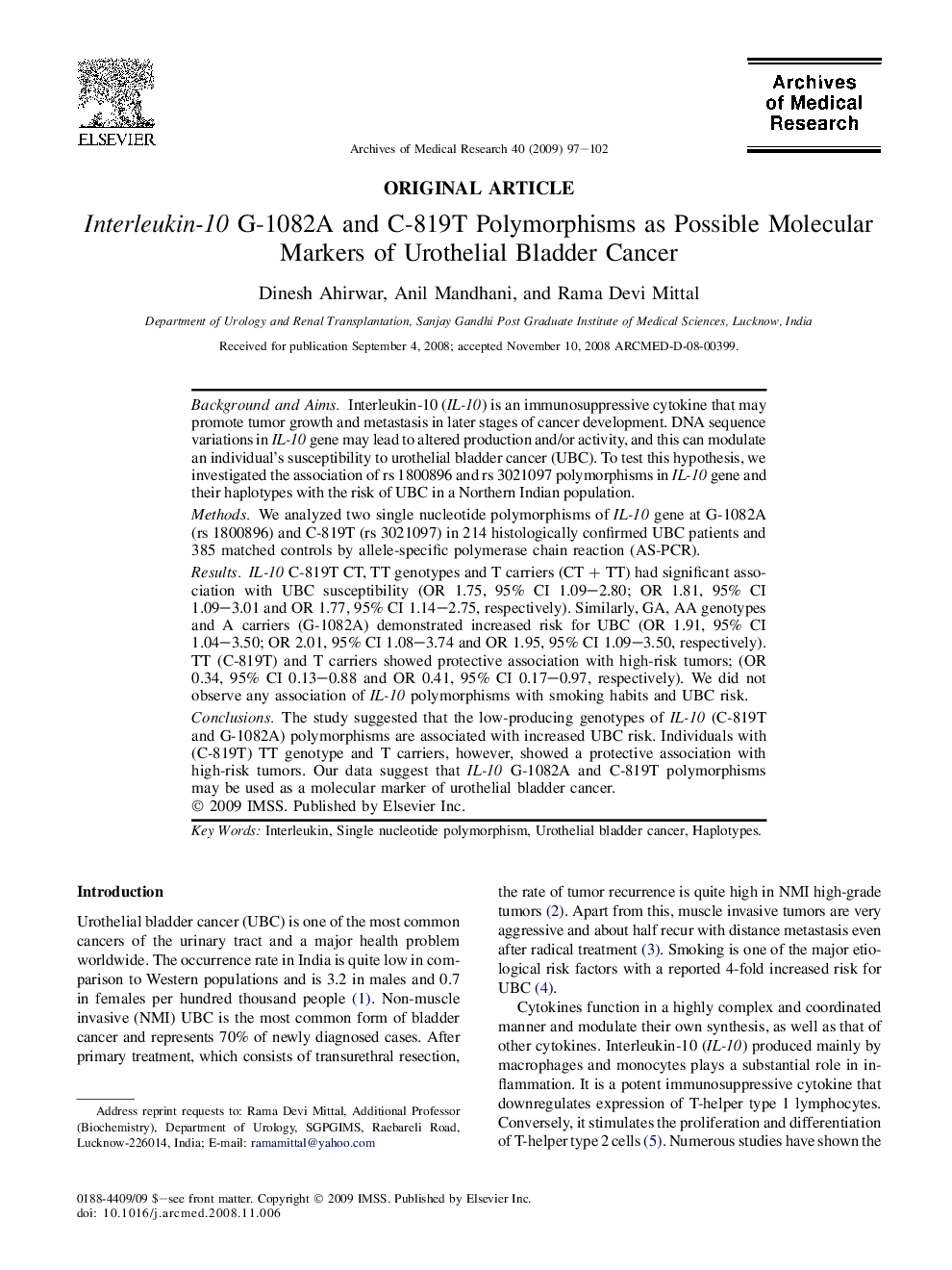| Article ID | Journal | Published Year | Pages | File Type |
|---|---|---|---|---|
| 3447585 | Archives of Medical Research | 2009 | 6 Pages |
Background and AimsInterleukin-10 (IL-10) is an immunosuppressive cytokine that may promote tumor growth and metastasis in later stages of cancer development. DNA sequence variations in IL-10 gene may lead to altered production and/or activity, and this can modulate an individual's susceptibility to urothelial bladder cancer (UBC). To test this hypothesis, we investigated the association of rs 1800896 and rs 3021097 polymorphisms in IL-10 gene and their haplotypes with the risk of UBC in a Northern Indian population.MethodsWe analyzed two single nucleotide polymorphisms of IL-10 gene at G-1082A (rs 1800896) and C-819T (rs 3021097) in 214 histologically confirmed UBC patients and 385 matched controls by allele-specific polymerase chain reaction (AS-PCR).ResultsIL-10 C-819T CT, TT genotypes and T carriers (CT + TT) had significant association with UBC susceptibility (OR 1.75, 95% CI 1.09–2.80; OR 1.81, 95% CI 1.09–3.01 and OR 1.77, 95% CI 1.14–2.75, respectively). Similarly, GA, AA genotypes and A carriers (G-1082A) demonstrated increased risk for UBC (OR 1.91, 95% CI 1.04–3.50; OR 2.01, 95% CI 1.08–3.74 and OR 1.95, 95% CI 1.09–3.50, respectively). TT (C-819T) and T carriers showed protective association with high-risk tumors; (OR 0.34, 95% CI 0.13–0.88 and OR 0.41, 95% CI 0.17–0.97, respectively). We did not observe any association of IL-10 polymorphisms with smoking habits and UBC risk.ConclusionsThe study suggested that the low-producing genotypes of IL-10 (C-819T and G-1082A) polymorphisms are associated with increased UBC risk. Individuals with (C-819T) TT genotype and T carriers, however, showed a protective association with high-risk tumors. Our data suggest that IL-10 G-1082A and C-819T polymorphisms may be used as a molecular marker of urothelial bladder cancer.
